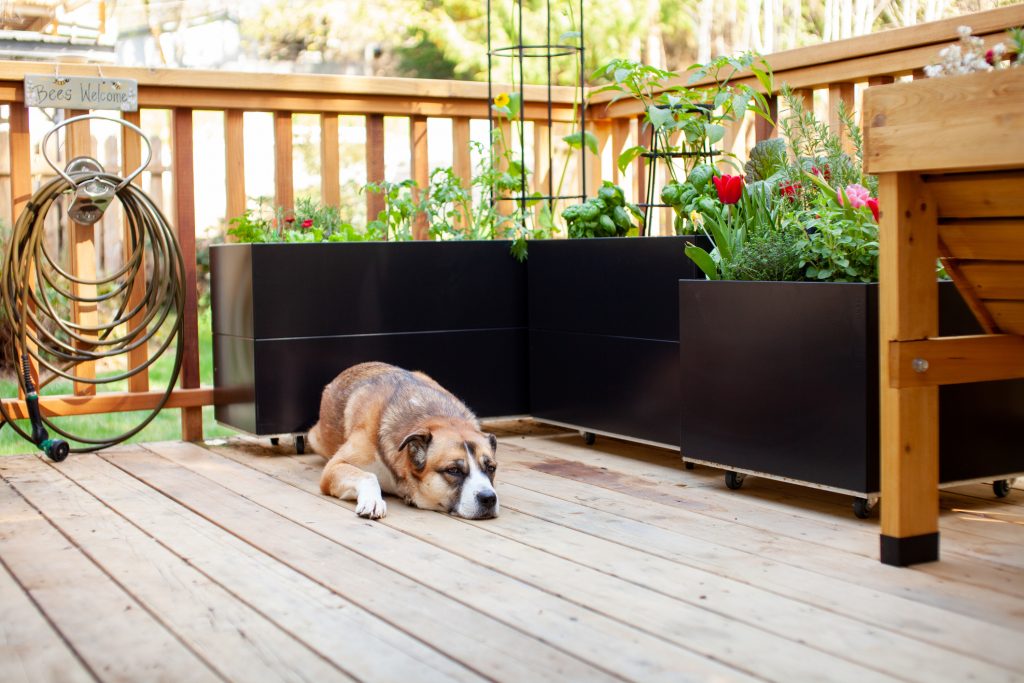Does a Deck Add Value to Your Home?

Adding a deck to your home is often seen as a stylish way to increase outdoor living space, but does it add value to your property? For homeowners considering this project, the answer is a resounding “yes.” A deck offers financial returns and lifestyle benefits, making it a sought-after feature for many potential buyers.
This guide digs into the specifics, breaking down the factors influencing a deck’s value and how you can make the most of this investment.
The Financial Benefits of Adding a Deck
A well-designed deck can significantly boost your home’s value and deliver a strong return on investment (ROI). According to the 2024 Cost vs. Value Report, a typical wood deck recoups about 83% of its cost at resale, while a composite deck offers an ROI of roughly 68% nationwide.
Factors like materials, location, and design play a role in these figures. For example, in the Pacific region, a wood deck can recoup as much as 111% of its cost, and composite decks have an ROI of around 88%. Decks consistently rank among the top exterior home improvements for adding value.
Wood vs. Composite Decks
Wood and composite decks each have their advantages. Here’s a quick breakdown:
Wood Decks: These are often the most budget-friendly option, with lower upfront costs. In the Pacific region, a wood deck typically costs about $18,936 and has an average resale value of $21,037 (111% ROI). While they offer excellent financial returns, wooden decks require regular maintenance, like sealing and staining, to prevent rot and damage.
Composite Decks: Composite decks are more expensive upfront, averaging $24,012 in the Pacific region, with an ROI of 88%. However, they are durable, low-maintenance, and eco-friendly (made from 95% recycled materials). They’re especially appealing in areas where year-round outdoor living is common.
Lifestyle and Intangible Benefits of Decks
While the monetary value of a deck is often the main focus, homeowners shouldn’t overlook the other benefits it brings to their daily lives. The National Association of Realtors gives decks a “joy” score of 9.8 out of 10. Here’s why:
- Increased Enjoyment of Home: 81% of homeowners say they enjoy their homes more after adding a deck.
- More Relaxation: 74% of homeowners feel more relaxed and enjoy their homes more once a deck is installed. A deck is perfect for morning coffee, family BBQs, or stargazing.
- Sense of Accomplishment: 77% of homeowners take pride in their new deck, seeing it as a reflection of their personal style and effort.
- Better Home Aesthetics: A well-designed deck can improve your home’s overall look, inside and out.
Choosing the Right Deck Materials
Choosing the right materials for your deck has a big impact on its look, durability, and overall value. Here’s a simple breakdown of the most common options:
Wood Decking
- Pros: Wood decking is affordable and gives a timeless, classic look that works well with many home styles.
- Maintenance: Wood requires regular sanding, staining, and sealing to stay in good shape. It’s prone to cracks, rot, and warping, especially in areas with harsh weather.
- Lifespan: Wood decks typically last 8–10 years, making them less durable than other options.
Composite Decking
- Pros: Composite decking is low-maintenance and resists weather damage, rot, and pests. It’s a great choice for anyone wanting a long-lasting, hassle-free deck.
- Eco-Friendly: Many composite decking brands use recycled materials, making it a popular choice for environmentally conscious homeowners.
- Cost vs. Value: Composite decking costs more upfront, but its durability and low upkeep often make it more cost-effective in the long run.
Factors That Affect Deck Value
To get the most value from your deck, keep these factors in mind:
Size and Design: A deck that’s too small might not attract buyers, while an overly large deck could feel out of place on a modest home. Make sure the size and style of your deck match your home.
Material Costs: Whether you go with wood or composite will affect your budget and the resale value. Choose materials that fit your budget but don’t sacrifice quality.
Location: Homes in areas where outdoor living is popular tend to see a better return on deck investments.
Labor Costs: Building your deck yourself can save money, but if you’re unsure of your skills, it’s worth hiring a professional to ensure it’s structurally sound.
Alternatives to Decks
If a deck doesn’t suit your property, consider a patio instead. Patios are usually more affordable to build and offer a better return on investment. A covered patio is another great option, combining cost-effectiveness, style, and practicality by providing shade and shelter for year-round use.
Whether you choose a deck or a patio, both can boost your home’s value and improve your outdoor living space.
How a Deck Can Affect Your Home’s Value
A deck isn’t just a home improvement project; it’s an investment in your property and your lifestyle. Whether it’s hosting a barbecue, relaxing under the stars, or enjoying a quiet afternoon, a deck adds value to how you use your home. Whatever you choose, the value and joy you’ll experience will far outweigh the costs.
It’s time to find your dream home! Hayden Homes has homes for sale throughout Idaho, Oregon, Montana, and Washington for every stage of life. We help homebuyers like you buy your first home, upgrade to a bigger one, or find the right size home for your lifestyle. Contact us today to learn more!
